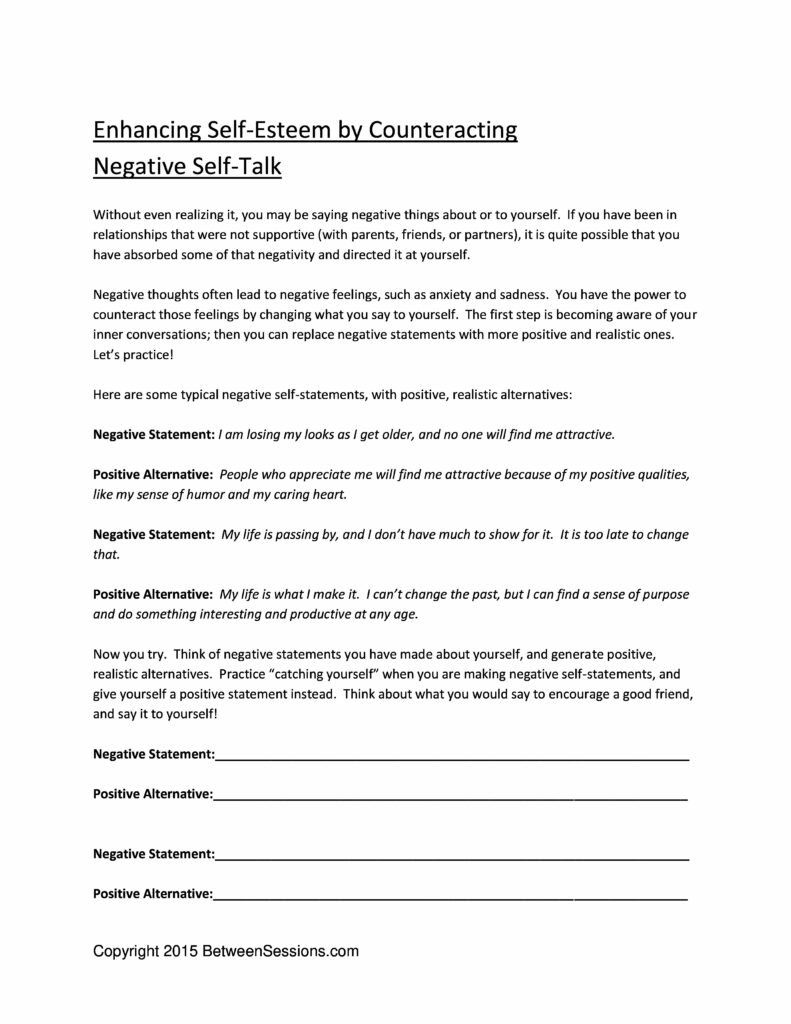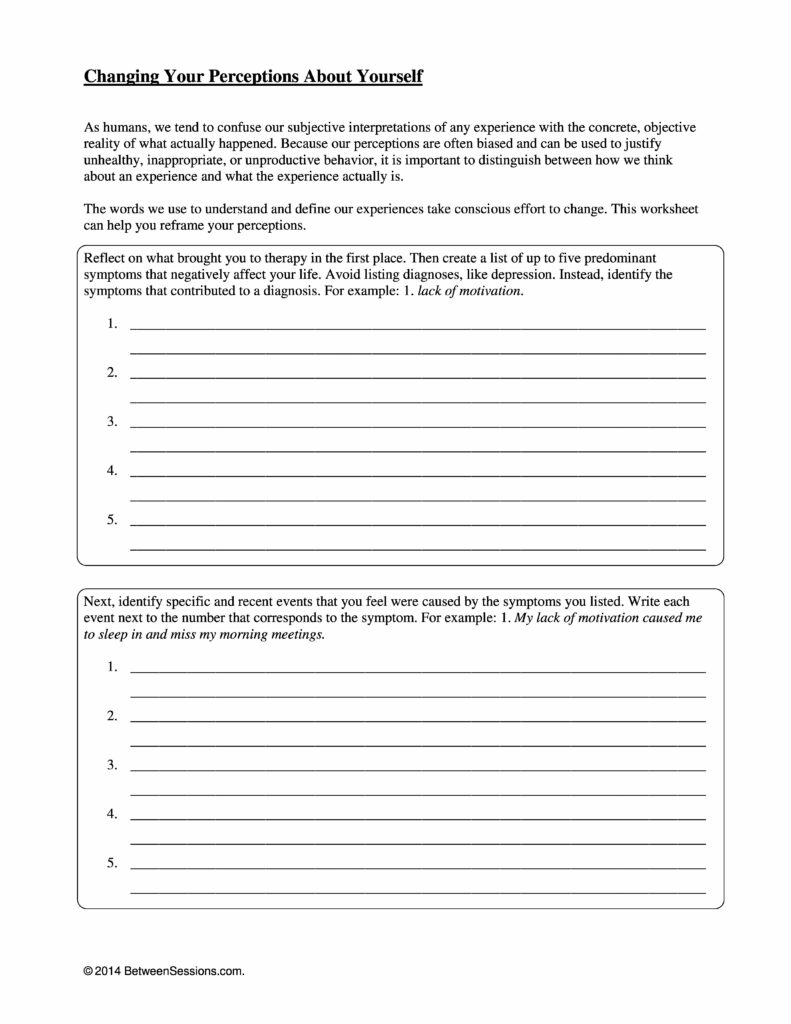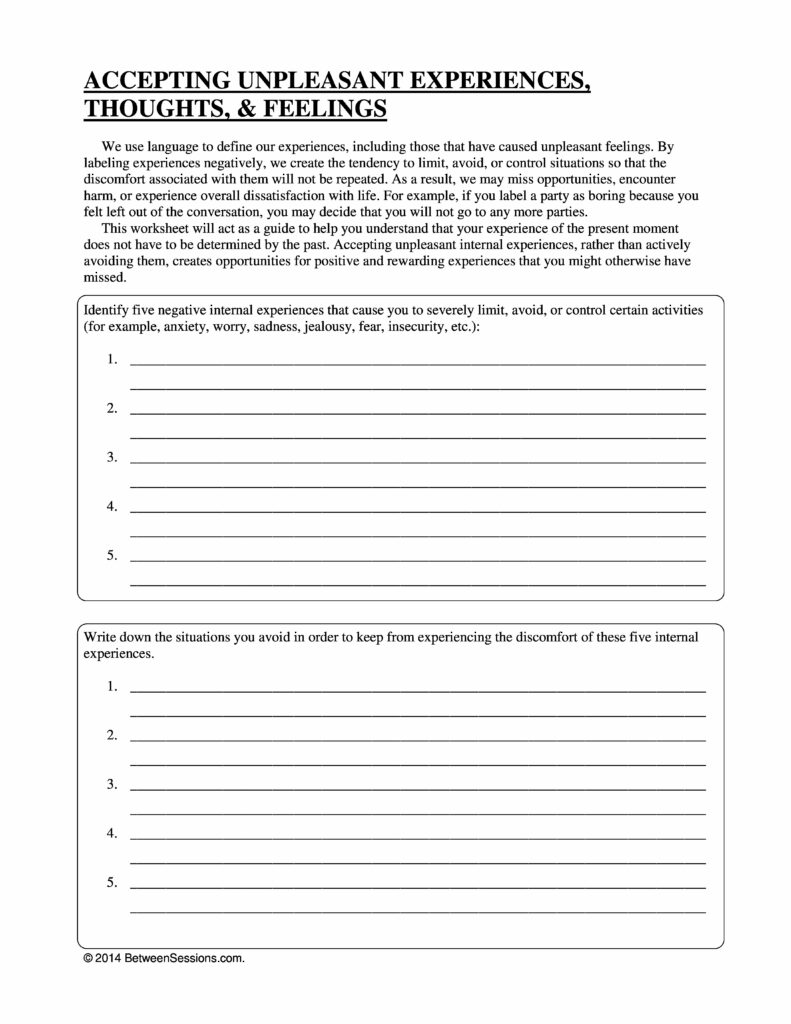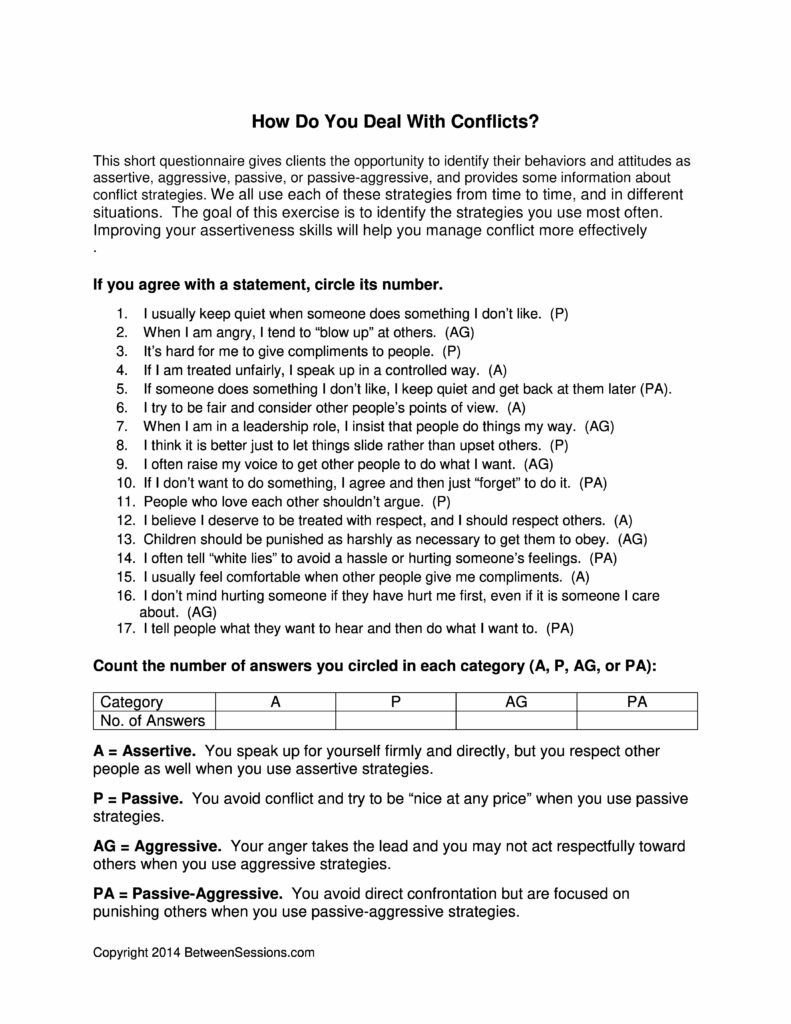This worksheet is designed to help people identify their moods during the day and talk about their feelings to someone else. Copies should be made, and the worksheet should be used for a minimum of seven days. (0315)
This worksheet is designed to help people put their problems into perspective. Taking an art therapy approach, people draw their small problems in little frames and the important things in their lives in the big frame. This worksheet can be a good opening to introduce a discussion about values. (values, art therapy, problem-solving, 0215)
Rooted in the work of Dialectical Behavior Therapy (DBT), this worksheet is designed to help clients let go of their style of negatively judging others, and to help them understand the negative effects of these thoughts and their associated behavior. (DBT, judgment, 0215)
This worksheet can help people identify and change the negative self-talk that can lead to low self-esteem.(self-esteem, negativity, 0215)
This worksheet asks clients to think about themselves objectively, based on the facts in their lives rather than on a subjective interpretation of their experiences. This exercise is derived from Acceptance and Commitment Therapy (ACT, 1114).
This worksheet, derived from Acceptance & Commitment Therapy (ACT), is designed to help people accept unpleasant internal experiences, and not use them as an excuse to avoid life-affirming situations.
This worksheet is a Narrative Therapy technique which can be used to help clients get more perspective on their presenting problem and see that they have the power to change their “life story.” (narrative, therapy, problem-solving, 1114)
This exercise is designed to help clients communicate positive aspects about their lives. The technique is derived from Narrative Therapy. (1114)
This worksheet is designed to help individuals learn emotional regulation skills. The worksheet asks people to identify activities they can do to calm their emotions and then rate the success of each technique. (DBT, emotion regulation, 0614)
This short questionnaire gives clients the opportunity to identify their behaviors and attitudes as assertive, aggressive, passive, or passive-aggressive, and provides some information about conflict strategies. (conflict management, communication)










